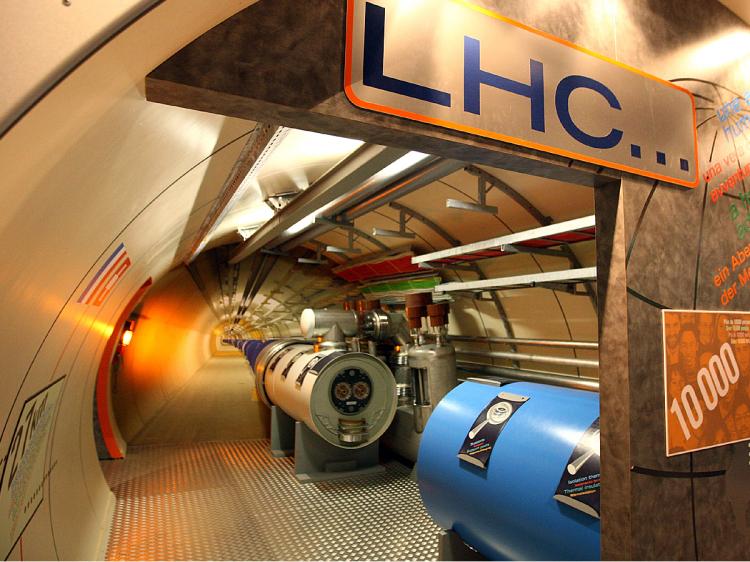Editor’s note: It states in this article that Austria will withdraw from CERN because of budgetary pressures. This came from Austria’s Minister of Science and Research Johannes Hahn, but the exit was overruled shortly after by Chancellor Werner Faymann. So Austria remains involved with the LHC project.
We are grateful to Professor Fabjan, Director of the Institute of High Energy Physics at the Austrian Academy of Sciences, and other enthusiastic readers for pointing this out.
As European Atom-Splitter Restarts, Austria Stays
Experiments using the Large Hadron Collider (LHC) may give insights into far-away stars and dark materials.

A model of the Large Hadron Collider (LHC) tunnel is displayed in the CERN (European Organization For Nuclear Research) visitors' center in Geneva-Meyrin, Switzerland. Johannes Simon/Getty Images
|Updated:





